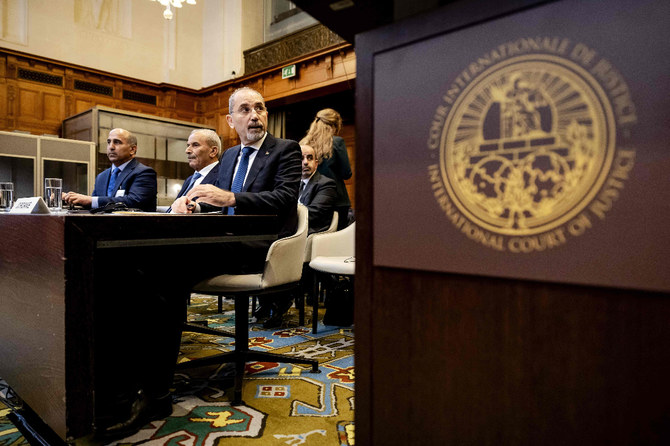THE HAGUE: Representatives of Turkiye, the Arab League, Organization of Islamic Cooperation (OIC), and the African Union presented arguments on Monday, on the final day of proceedings at the UN’s highest court, on the legality of Israel’s occupation of the Palestinian territories.
Over one week, the judges of the International Court of Justice, also known as the World Court, heard arguments from more than 50 states and three international organizations following a request by the UN General Assembly in 2022 for the court to issue a non-binding opinion on the legal consequences of the Israeli occupation.
Gaza genocide is the essence of decades-long tragedy: African Union
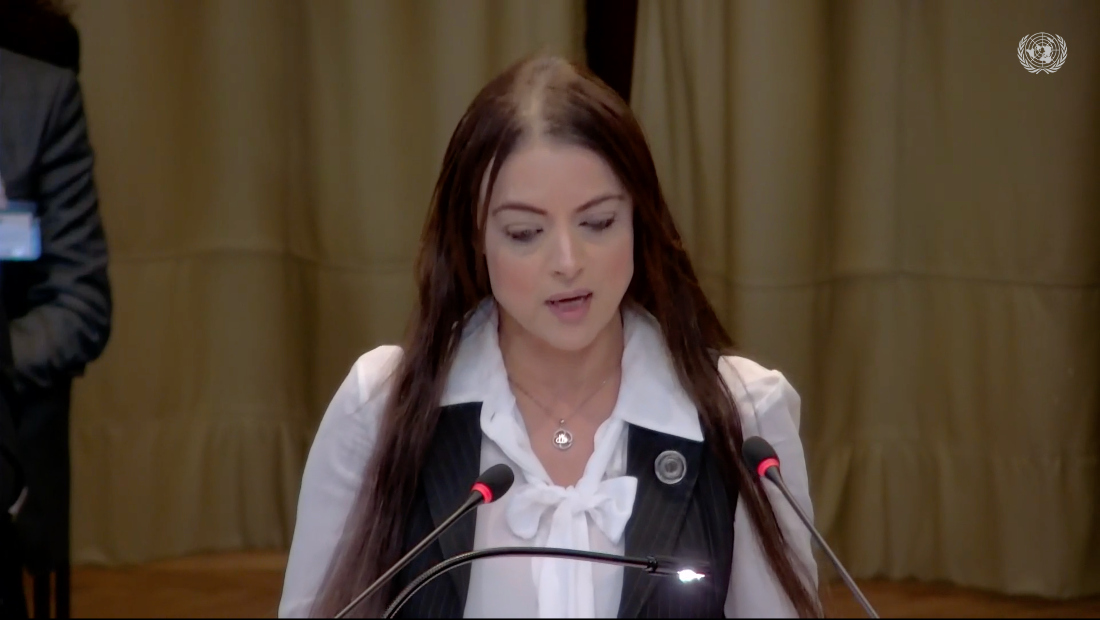
African Union representative, Hajer Gueldich, told the ICJ that the “unspeakable suffering and horror inflicted on the population of Gaza” is the essence of the Palestinian tragedy for over a century.
She called Israel’s ongoing war on Gaza as “nothing but a shameful attempt to create another Nakba, a further catastrophe destined to erasing the Palestinian presence in Palestine.”
“The history of Palestine is a history of dispossession, displacement, and dehumanization. It’s a history of injustice.”
She said the ongoing Israeli aggression against Gaza demonstrates the tragedy of the Palestinians who have been “systematically subjugated and oppressed by the Israeli colonial project” for over seven decades.
The advisory proceeding, she noted, presents an opportunity to hold Israel accountable for attacks, put an immediate end to Israel’s “impunity” and uphold international humanitarian law.
OIC says two-state solution imperative to regional peace
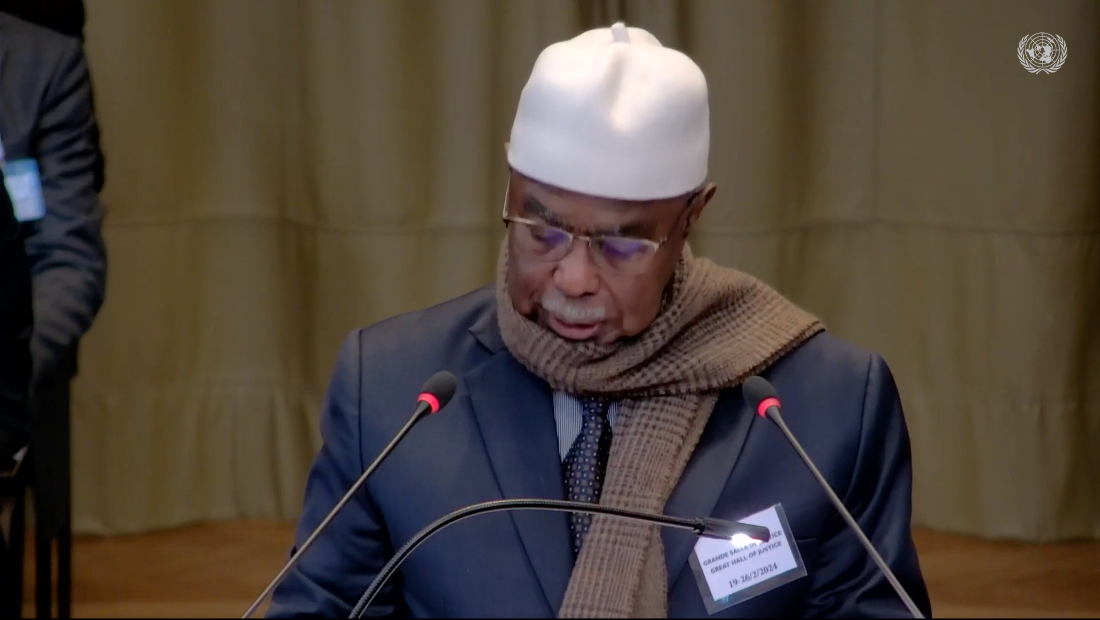
Hussein Ibrahim Taha, Secretary General of the OIC, said “a just, lasting and comprehensive peace based on a two-state solution in Palestine is only way to ensure security and stability of all people in the region and protect them from the cycle of violence.”
He urged countries to cease exporting arms and ammunition to Israel as “the army and settlers are using them against the Palestinian people” and called on the ICJ to condemn the accelerated colonization of East Jerusalem and the Israeli attacks against the Islamic and Christian holy places.
Taha reiterated the organization’s condemnation of Israel’s attack on Gaza, which killed about 30,000 Palestinians and injured thousands more, as well as the escalated violence in the West Bank and East Jerusalem.
He also deplored the inability of the Security Council “to uphold international law to end the spiral violence and render justice to the Palestinian people.”
Arab League says Gaza genocide is result of failure to end prolonged occupation
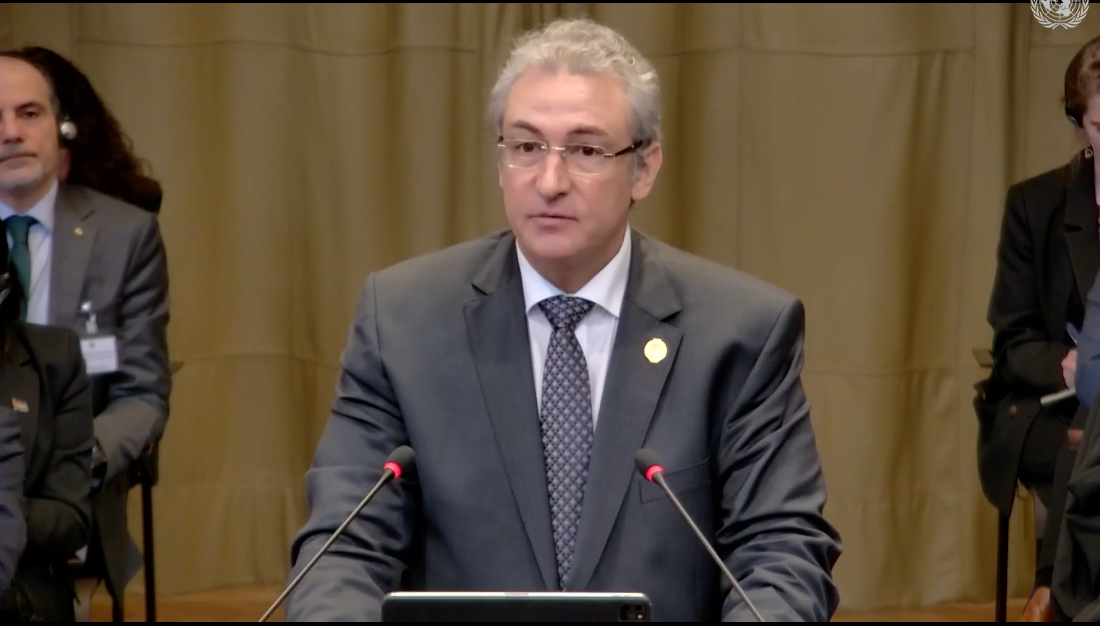
Abdulhakeem Al Rifai, representative of the Arab League, said failure to end the prolonged Israeli occupation of Palestine “has led to the current horrors perpetrated against the Palestinians [in Gaza] amounting to genocide.”
He said the occupation is an “affront to international justice.”
“There can be no moral or juridical justification for occupying lands, killing, terrorizing, and displacing their populations.”
He called Israel the “last oppressive, expansionist apartheid settler colonial occupation still standing in the 21st century”, urging the ICJ to confirm the illegality of Israel’s occupation and “unambiguously rule on legal consequences for all parties especially those who turn a blind eye, facilitate, assist or participate in any way in perpetrating this illegal situation.”
“Only the rule of law not the prevailing law of the jungle will pave the way to peace in the region,” he said.
“Ending the occupation is the gateway to peaceful coexistence”.
He noted that the insistence of placing Israel above the law through the politicization of accountability and adopting double standards were “a direct threat to international peace and stability.”
Turkiye warns of danger of leaving Israel ‘unaccountable’
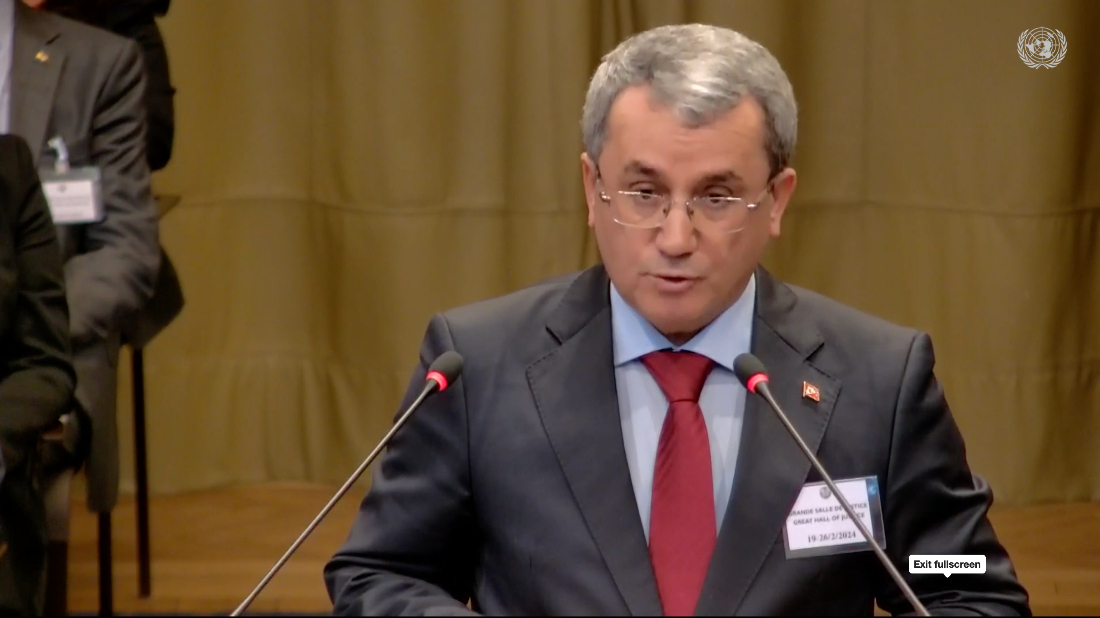
Ahmet Yıldız, the deputy foreign minister, told warned the UN top court of the risks of leaving Israel’s ‘indiscriminate attacks’ on Palestinian civilians in Gaza unaccountable.
“As the injustices and double standards that the Palestinians have been subjected to for decades continue, reactions from people in the region and beyond will multiply. In other words, we must hold accountable before the law those responsible for their attacks on civilians otherwise such outrageous behavior might be emulated elsewhere in the future.”
He condemned Israel’s plans to limit access of Muslim worshipers in Al Aqsa Mosque during the holy month of Ramadan, noting that the rhetoric repeated by Israeli ministers “is worrisome.”
Yıldız reiterated Turkiye’s calls for the international community to address the root cause of Palestine-Israel war as the only method to bring regional peace.
He argued that the conflict did not start from Oct. 7, and wasn’t “about a certain Palestinian faction or group. The conflict dates back to an earlier century.”
He added: “The real obstacle to peace Is obvious – the deepening occupation by Israel of Palestinian territories and failure to implement the two-state solution.”
Israel’s military offensive on Gaza since Oct. 7 has killed almost 30,000 Palestinians, most of them are woman and children, and placed 2.3 million people under full blockade by Israel. More than 2 million Palestinians have been forcibly displaced.
“Israel’s attacks have turned into collective punishment,” said Yıldız.
“The lack of political interest among the international community to address root causes of the conflict created a strong sense of injustice among the Palestinians and, in general, among international community.”
He accused the UN Security council, which, he said, has the primary responsibility for maintaining international order and security, of failing to bring solution in Gaza.
On the first day of hearings on Monday, Feb 19, Palestine’s representatives asked the judges to declare Israel’s occupation of their territory illegal and said its opinion could help create conditions for agreement on a two-state solution.
Most nations have been critical of Israel’s conduct in the occupied territories, with many urging the court to declare the occupation illegal.
However, the US has stood by its ally, arguing against immediate and unconditional withdrawal from the occupied territory.
Israel, which is not taking part, said in written comments that the court’s involvement could be harmful to achieving a negotiated settlement.
The hearings are part of a Palestinian push to get international legal institutions to examine Israel’s conduct, which has become more urgent since the Oct. 7 attacks by Hamas in Israel, which triggered a military response that has since killed about 29,600 Palestinians.
The ICJ’s 15-judge panel has been asked to review Israel’s “occupation, settlement and annexation ... including measures aimed at altering the demographic composition, character and status of the Holy City of Jerusalem, and from its adoption of related discriminatory legislation and measures.”
The judges are expected to take about six months to issue their opinion on the request.


